#so unfortunately i truly do think he just doesn’t see the queer themes/queer coding that fans also see in the holmes/watson dynamic
Explore tagged Tumblr posts
Text
not gonna personally comment on the s&c thoughts bc i don’t know how to articulate mine, but transcripts aren’t a patreon exclusive thing and you can definitely access them on their website. unless you mean patreon members get all the episodes and transcripts in one go then yes that’s true, but every week when an episode is released a transcript is also released to the public
Sherlock Holmes became an adaptation of an adaptation.
By watching several adaptations, it is possible to see how Holmes' personality begins to change over time, and how some adaptations are very similar to each other, not because they are based on the same book, but because they are based on each other instead of being based on the canon.
For example, the stereotype that Holmes is cold and emotionless, even though in the book Watson indeed says that Holmes is "a machine", Watson still describes him as sensitive, gentle, Holmes compassionate towards the clients who need it most. In addition to the explicit affection he has for Watson and how he respects Watson's feelings.
In older adaptations, Holmes has a personality and attitudes that are more faithful to the books, until the 2000s, Holmes' personality was consistent with the canon.
From the 2000s onwards, the adaptations became increasingly distant from the canon and began to be based on existing versions of the character instead of the canon, and thus a whole new perception of the character was created that did NOT match AT ALL with his original counterpart.
(very long post)
And it's not just Holmes' personality that is affected, but his dynamic with Watson and the history and personality of the other characters ends up being affected. For example, Irene Adler.
Although the interpretation of Irene as Holmes' romantic partner has existed for decades, since the 19th century, and even though she appeared in ONE short story, and was the only woman to beat the great detective, her relevance in having been a woman at that time and having been smarter than Holmes was transformed and reduced to her being Holmes' love interest, BUT even then, there isn't THAT many adaptations where Irene is portrayed this way how people think
First, there is Alice Faulkner, Holmes' romantic partner created by William Gillette, an original character inspired by Irene Adler, but very different from Irene. Holmes helps her and falls in love with her, kinda cute. (almost everyone knows) William Gillette is also responsible for the image of Holmes with the big pipe and the famous phrase never said by the canon Holmes "Elementary, my dear Watson". This is where the first influence on the other adaptations begins.
William Gillette's Holmes inspired the adaptations by Clive Brook and John Barrymore. Brook's version Holmes has a wife like Alice, and Barrymore's version is an adaptation of Gillette's film.
‼️This is all referring specifically to visual media such as movies and tv shows.
From decades before until the 1950s (not included), there is no Irene Adler. Of the more than 30 adaptations, four of them have an original female character as a romantic partner to Holmes. From the 50s to the 80s (not included), there are 30 other film and television adaptations. Where Irene only appears in 1976 in “Sherlock Holmes In New York” with Roger Moore as Holmes, and I believe that this is perhaps the FIRST version where Irene and Holmes really have a romance.
In this movie, half of the time, it is shown how Holmes loves Irene Adler and misses her, until a case ends up taking him to New York, to meet the woman he loves so much, BUT in the end, after he discovers that he has a son with Irene, he simply decides that he cannot stay with her and their son, because he has a whole life in London and cannot leave everything like that. Father of the year.
Before that, of course, there is “The Private Life of Sherlock Holmes” in 1970 by Billy Wilder, where he has the character of Gabrielle, which may have been the starting point for Irene Adler's transformation.
There were two adaptations in the 1970s where a man ends up in a type of psychosis that makes him believe he is Sherlock Holmes and a doctor named, by coincidence of course, Watson, and she is the one who helps him. In the first film, “They Might Be Giants,” Holmes and Dr. Watson fall in love.
At this time, it has the movie “The Seven Per-Cent Solution,” where Freud helps Holmes overcome his “aversion to women” and at the end of the movie, Holmes meets a potential female love interest.
Of all the 33 films from this period [50s-80s], there is ONE movie where Holmes is implicitly homosexual, ONE movie where H&W fall in love, ONE movie where Holmes has an original female romantic partner and ONE movie where Holmes and Irene Adler were a couple.
Irene only appears then in the “Soviet Holmes” series from (1979), where although it seems that Holmes may have feelings for her, she is not a love interest.
From the 80s to the 2000s (not included), of the almost 40 film and television adaptations, Irene Adler only appears THREE TIMES.
In 1984 in the film with Peter Cushing “The Mask of Death”, where Holmes seems grumpy with the mere presence of Irene and complains about how he lost to a woman. In the same year also Irene appears in “Granada Holmes” which is probably the most faithful adaptation of the tale of the Scandal in Bohemia.
Irene only appears AGAIN in 1991 in “The Leading Lady” with Christopher Lee, where Irene has no self-respect whatsoever and has only one mission in this movie, which is to marry Holmes. She literally says that she DOESN’T CARE IF HOLMES DOESN’T LOVE HER, she wants to marry him and ends baby trapping him.


In 1994, there was the pilot episode of the series that would be called “Baker Street: Sherlock Holmes Returns”, which is a remake of the 1987 pilot episode “The Return of Sherlock Holmes”. In the first version, Holmes wakes up from cryogenics and meets Watson’s granddaughter, Jane, and from her, he learns that it is okay to be gay in the 80s. In the second version, Holmes is found by a doctor named Winslow who falls in love with him, but Holmes shows no interest in her.
In the late 90s, there is “Shirley Holmes”, who is Holmes' great-great-granddaughter-niece (?), her father is a Holmes and her mother is a doctor named Joanne. There is also “My Dearly Beloved Detective” where H&W kiss, the movie is mainly about love.
From this period, of the three times that Irene appears, only once she is a love interest and other THREE adaptations that put H&W in a romantic position.
So until the 2000s, of the more than one hundred adaptations, Irene is Holmes' love interest ONLY TWICE.
Of about 61 film and series adaptations produced since the 2000s till this day, EIGHT adaptations have Irene Adler as Holmes' romantic partner and another EIGHT adaptations where Holmes has other originals female characters as romantic partners.
And hust because I'm a math teacher:
It's worth noting that the number of adaptations (movies and tv shows) in 25 years is almost equivalent to the number of adaptations (movies and tv shows) in ONE CENTURY.
From the first sample of adaptations (movies and tv shows) from the period 1900-1999, there were 104 adaptations.
Irene as a romantic partner: 2 (± 2%)
Original Female Character: 4 (± 3.8%)
H&W in a romantic situation (corresponding or not, explicit or not): 4 (± 3.8%)
From the second sample of adaptations (movies and tv shows) from the period 2000-2025, there were 61 adaptations.
Irene as a romantic partner: 8 (± 13%)
Original Female Character: 8 (± 13%)
H&W in a romantic situation (corresponding or not, explicit or not): 7 (± 11.5%)
Irene Adler as love interest from the 2000s onwards:
“The Royal Scandal” with Matt Frewer, their relationship is implicit, this movie sucks, but other Frewer movies are good, as is Clive Merrison, Frewer is one of the only actors who has a voice that most closely matches the description of Holmes' voice in the canon. Also in the television film “Sherlock Holmes and the Baker Street Irregulars”, where Irene spends most of the movie disguised as a man, because of course that the ONLY WOMAN Holmes could fall in love with, dresses as a man. And then we have the Robert Downey Jr. films where despite explicitly showing the romantic relationship between Holmes and Irene at the same time it implicitly shows the romantic feelings between Holmes and Watson. And then we have “Elementary” (2012-2019), “Шерлок Холмс” (2013), “Sherlock Gnomes” (2018) and the most recent “CBS Watson” (Holmes is dead but they still made sure to let us know that Irene and Holmes had an affair.)
So, it was here, in the 2000s that the adaptations really began to change and became adaptations of each other. Holmes lost his personality and became another character. The canon stories were replaced by “fanfics” of other adaptations. (Irene Adler case)
I consider that three adaptations are mainly responsible for the CURRENT image of Sherlock Holmes, and that it is from these three adaptations that the image that we have (in the contemporary era) of Sherlock Holmes was perpetuated and is the basis for the adaptations produced more recently.
The first is House M.D. (2004-2012). Although the general public does not know that it is based on Sherlock Holmes, House influenced other adaptations, especially the personality that Holmes has today. The cliché of the super-intelligent, cold, calculating, emotionless male character begins here. Even though House is not exactly that trope. The image of Holmes being insensitive to clients/patients, his arrogance and being an ASSHOLE starts in House. Including the way he treats or mistreats Watson/Wilson.
The second adaptation is the Robert Downey Jr. films as Holmes (2009-2011). He turns Holmes into an action hero, which Holmes is not, his personality does not match the canon at all (in these movies, this is not a problem). But the main influence of RDJ Holmes is Holmes as an action hero, and being SLOPPY. He dresses badly and does not keep a clean appearance. It looks like he has not showered in months. I know he STINKS.
And then we have the third adaptation, which is where the adaptations of other adaptations begin: BBC Sherlock (2010-2017). BBC Sherlock could almost be an adaptation of “The Private of Sherlock Holmes” considering the amount of similarities and references to Billy Wilder's film and the number of times Moffat and Gatiss said that this was their favorite film and INSPIRATION. BBC Sherlock is set in the modern era as Basil Rathbone's film series was then, it also makes references to the 1965 BBC series with a background appearance by Douglas Wilmer, they made reference to “Granada Holmes” in “The Abominable Bride”. And considering that RDJ Holmes is (I believe) the FIRST adaptation that decided to have Irene Adler working for Moriarty, it can be considered that Irene Adler from BBCSH, besides being an adaptation of Gabrielle from “Private Life of Sherlock Holmes”, is also inspired by Irene from the movie.
Still, controversy, but BBC Sherlock also suffers from the influence of House, mainly in Sherlock’s PERSONALITY. He has a personality quite similar to House’s.
So we have BBC Sherlock that is inspired by other adaptations and other adaptations that are inspired by BBC Sherlock. They are adaptations based on others adaptations, where the original Holmes gets lost and it is no longer possible to recognize him.
House influenced BBC Sherlock, Elementary and CBS Watson. Although Elementary suffered from the obvious comparisons to BBC Sherlock, it clearly follows a House approach style, including the opening of the show is inspired by the 1965 BBC series. And even with the influences of other adaptations, Elementary managed to maintain a personality more in keeping with Holmes, despite the sexual appeal that Elementary Holmes has (I believe it's House's fault). This Holmes has character development and takes a more serious approach to being neurodivergent and queer, and to his addiction. Unlike both House and BBCSH, which do not fully address Holmes' autistic, or his sexuality, and in the case of BBCSH at no point does it seriously address Sherlock's addiction problem.
And again, possibly influenced by Irene from the Warner Bros. films, we have an Irene Adler who works with Moriarty, and spoiler alert, not only does she work with Moriarty but is actually Moriarty herself. In addition to having a romantic involvement with Holmes, and Moriarty (her own counterpart) being an obstacle in their relationship (as in the film).
CBS Watson series has a big problem, being from the same producers as Elementary, even though Elementary managed to maintain consistency and a certain fidelity to Holmes' personality, CBS Watson ends up having almost no personality, being similar to House, and with a Watson that seems trying to be Holmes at all times. In a way, CBS Watson is an adaptation of another adaptation: House, which is inspired by Sherlock Holmes.
RDJ Holmes has influenced two Russian adaptations, “Sherlock Holmes” from 2013, where despite expectations that it was inspired by the Soviet series from 1979, the new Russian Holmes is very similar to the ways of RDJ Holmes, sloppy and careless. The series plot is that Watson narrates the adventures of Sherlock Holmes, but the Holmes he writes about is not the same as the real Holmes he lives with. Even though in this context, fidelity to the canon somehow does not need to exist. It still shows the influence of RDJ's films. And again, Irene Adler here is Holmes' romantic partner.
As for the NEW Russian series “Sherlock in Russia” (2020), despite its originality and very well produced, we have an almost sloppy Holmes, long hair and a goatee, that yes, is RDJ's fault.


Being the most influential of the post-2000s adaptations, BBC Sherlock influenced several other adaptations, such as: “Miss Sherlock” (2018) which is not only inspired by BBC Sherlock, but clearly an adaptation of BBC Sherlock in a modern Tokyo setting where Sherlock and John are women. (An adaptation of another adaptation that was inspired by other adaptations). “Sherlock Untold Stories” (2019-2022) which is also heavily inspired by BBC Sherlock visually, but unlike Miss Sherlock it manages to be more original.
Moriarty the Patriot's Sherlock. Both the manga and the anime are, in my opinion, the best adaptation of Sherlock Holmes, both in the original plot and in how they adapted Moriarty and the canon to the context of the manga universe. However, Sherlock is clearly inspired by BBCSH's Sherlock. Some parts of the manga are also very similar to the events of BBC Sherlock.


And the most controversial one: Sherlock and Co. And I say this not as if they deliberately decided this. It's undeniable the impact that BBC Sherlock had on the general public's perception of WHO SHERLOCK HOLMES IS. Considering that the producer himself said that they had three audiences that they had to balance when making this adaptation, one of them being the "Johnlocker Community". Evidencing the HUGE impact that BBC Sherlock has even on the general Sherlock Holmes fandom, and yet, the producer said that he didn't know about queerbaiting when the allegations started that SH&Co. could be queerbaiting, remembering that no adaptation is obligated to make H&W a couple. This fact happened precisely because of the public's perception of how SH&Co. is similar to BBCSH and not just because it is set in the modern era. Observing the fandom, especially in the beginning, it was perceptive that SH&Co. was being treated as an extension of BBC Sherlock. So by EXTERNAL CONSEQUENCES, I will consider that SH&Co. Whether willingly or not, he suffers from the direct influence of BBCSH (and its fandom).
And then there's the Netflix problem. I haven't read the Enola books (yet), and I have no idea how Holmes is adapted in her books. But Henry Cavill Holmes is a consequence of BBCSH and RDJ. It's as if they had a son, but he clearly pulled Sherlock's hair more (BBCSH).

And Irregulars, only Netflix know where they got their inspiration from to do that. And Holmes is sloppy again, it's RDJ's fault. And taking inspiration from Sherlock in New York, Netflix's Holmes also abandons his daughter even though he says he loves the child's mother more than anything. Eleven worse, Irregulars Holmes neglects his daughter for FIFTEEN YEARS, but her mother is the love of his life and could let the world end if they could be together. And for some reason Watson loves that jerk.
(also is like benedict and jonny lee miller had a child)

And the light at the end of the tunnel came, unexpectedly, from the CW. Finally an adaptation that is not based on another adaptation, that despite the original approach, it is still noticeable that it is in fact based on the canon and does not suffer from the influence of other adaptations.

This is based on a twitter discussion, but mostly on a comment from an oomf.
English is not my first language, I am smarter in Brazilian Portuguese
#idk if i misread this#nvm i lied im gonna try articulate some thoughts#anyway going off that podcast point#im a huge fan of podcasts and i also rlly feel podcasts as a medium are like KNOWN for having queer rep#or at the least almost all the podcasts i’ve listened to have some sort of queer rep#i do think that’s also because either the team involved in them/the actors are queer#like many there’s queer actors in wtnv who play queer characters#queer writers and many queer actors in the penumbra podcast#etc#anyway my point is that joel emery is . cishet#so unfortunately i truly do think he just doesn’t see the queer themes/queer coding that fans also see in the holmes/watson dynamic#despite knowing that johnlock is a very prominent thing in certain sherlock communities#which . i guess isn’t rlly an excuse now bc im sure he knows by now just how many queer sherlock/johnlock fans there are#this was prob worded weirdly but basically my point is#ur right joel has such a good opportunity to canonise a romantic johnlock#BUT i understand his point of not wanting to have an overarching romance#and also if john and sherlock continue the type of close friendship they have in the podcast rn#i also don’t think id mind if they’re never canon#as to the possibly queerbaity jokes i know some ppl have criticised the podcast as having……#i think we’ll just have to see if those sorts of jokes continue😭#bc genuinely i think there’s only been two instances where you could interpret as a queerbait joke#i.e mariana thinking they’re a couple and showing them 221A#and irene calling them loverboys#and like . call me crazy but if those are the only those two jokes then i don’t think it’s rlly queerbait#but that’s a whole other topic my bad#sherlock holmes
376 notes
·
View notes
Text
And finally, here we are, Episode 36 of Word of Honor, and I have some FEELINGS. Let me show you them.
There also will be Episode 37 here, btw, because I’m not gonna do a separate reaction for a three-minute episode, no matter how grateful I am that we got it.
(Spoilers, so if that’s not what you want right now, scroll on by and come back after you’ve watched it. Them.)
Let’s get to the meat of the episode right away: THE HAIRPIN. And Wen Kexing knowing Zhou Zishu would have it, because he’d definitely take it with him if he was going on a suicide mission! Y’all. I really have to yell about this for a minute: That’s how secure WKX has become in his knowledge of what he means to ZZS! After all that time angsting and hiding the truth of his identity and worrying that he’s not worthy of ZZS and that he’d be rejected if ZZS knew the truth about him! But now, WKX has finally reached a point where he understands and knows (zhiji, the one I know) he’s so important to ZZS that ZZS would never ever go off to die without taking his most precious possession, the hairpin that his husband gave him! I can’t. My heart. This is like a declaration, after all that time saying they were zhiji, that WKX finally is able to truly see ZZS as that, to know him in his bones, and all of this is also delivered in the middle of WKX in a strop, irritably chastising his husband as an evil brat for running away from home to get himself killed, with Gong Jun’s little >:( face in full effect, and I am so filled with love for this show and this couple at this point that I have to pause Youtube just so I can roll around on the sofa, clutching at my chest and scaring the cats with my inarticulate noises. This is so good, y’all. It’s everything I’ve ever wanted. Also, now you know how it feels, WKX, you asshole. Which I suppose is why you even confess that it will would be more painful for the one who survives when if the other dies. And you were prepared to do that to him a second time? I cannot believe you, you asshole. You get to sleep on the ice couch for a month.
And then there’s some Six Cultivation Power mind-melding and what looks to be an INCREDIBLY STUPID and HEARTBREAKING ending that would leave us Burying One of Our Gays, so it’s a good thing Episode 37 (all three minutes of it) exists. It would be nice, though, if the connective tissue from 36 to 37 made any sense. Or existed whatsoever. Just, like, throw me a bone, here, show. Some kind of explicit hand-waviness that actually gets mentioned for why Ye Baiyi apparently was not as smart as he thought he was and didn’t really know what he was talking about when he was doomsaying about how one of the pair will surely, oh surely perish. None of this “Sooooo, they managed to figure out the technique and master it?” from some random shidi who never actually gets an answer. I mean, the door was left open for fanwankery on this one, with what looks to be a very last-minute conceit of all this being a story told by grown-up Chengling to his disciples, which begs the question of how much of what he’s telling them is totally accurate, given any number of issues, including the spottiness of human recall, the possibility (based on the fact they’re still on the mountain in Ep 37) that Chengling never actually saw either of them again to get the full story, and the way Gao Xiaolian basically calls bs on the whole thing. But this is still a gossamer-thin thread on which to hang Ep 37. Ep 37 basically functions as reassurance because of the mere fact of its existence, because they’re clearly both alive, right there in front of your face, regardless of the other fact that it doesn’t actually make any sense, based on Ep 36. It ultimately doesn’t matter if there is no Step 2, because Step 3: Profit! is … right there. In evidence. Happening. On your screen. No matter how vaguely unsatisfying the lack of Step 2 may be.
I do feel like there’s an interesting meta thing going on here, in that the entire show has been about – let’s be honest, it was never really about the plot - queer-coding this couple in ways that supposedly fly just enough under the radar that people can handwave them as Just Good Friends and Brothers (I mean, I guess) with a Bury Your Gays tragic ending (ugh) for good measure. And Chengling is telling a story in-universe that seems to conform to some of this same formula. And yet, we all know well and good that these guys were husbands. (I mean, barring anything else, they’re a couple in the original source material, so checkmate, censorship.) So, are we supposed to carry the same assurance out of the show, on a meta level, that what appears to be happening at the end of Ep 36 - what we discover we’re learning through Chengling’s story-telling - isn’t really the truth? Just, look: While we’re getting the Good Friends and Brothers push, there’s stuff like obvious voice-over work that doesn’t match the much more queer version of what the actors actually said, which is apparently blazingly clear to any viewers who know Mandarin and can manage to lip-read. The show has literally put de-queered words into these characters’ mouths. You can’t trust what you hear. But apparently the show has also made this obvious enough that, if you’re a good enough speaker of the language the show is being told in, and you have a good enough eye, you can see what is actually going on. Are we being taught to trust our eyes more than our ears, are we being told that what we’re being told - by the end of Ep 36 on a meta level, by Ye Baiyi-through-Chengling’s-story on an in-universe level, and by what we learn about what happened from Chengling’s story, itself, also on an in-universe level - is inherently untrustworthy, but that if we “speak the language” of this show well enough, and have a good enough eye, we can decode it and see what “actually” happened and is later made explicit in Ep 37? Is Ep 37 canon? Does it matter, when “what is canon” is already so slippery on this show, where you can apparently lip-read something that’s different than what you’re hearing, and it functions as canon because of the mere fact of its existence, because it’s clearly … right there. In evidence. Happening. On your screen.
Anyway, just some thoughts on all that, which I guess is my own fanwankery work to join up the end of Ep 36 with Ep 37, which was, of course, delightful. No matter how much I might bemoan the lack of Step 2, I had a stupid, dopey grin on my face all the way through Ep 37 and might have even teared up a tiny bit at the very end. You can’t prove anything. Lemme tell you, though, it’s a good idea to have 37 on hand when you run into the brick wall of the end of 36, because while WKX’s willingness to sacrifice himself for love is theoretically great, it is not something I actually want to see come to fruition, given the pall it would cast over the entire joyous experience that the ZZS/WKX relationship is throughout the rest of the show. Sure, there’s always fic, but there’s a heaviness that hangs over the Bury Your Gays trope, and it’s retroactively ruined shows for me before. So THANK YOU, to those of you who hooked me up so I could immediately move on to Ep 37.
What else? Other things:
OK, so, first, I have to get this out of the way: Did we actually already see all of those “flashbacks” we get in the first part of the ep, during the conversation between Zhou Zishu and Jing Beiyuan, when all the political stuff is supposed to be finally falling together to give us the big picture? I would have to go back and scrummage through those eps to be sure, and I’m not going to spend time doing that (yet) when I still need to do some keysmashing about Zhou Zishu and Wen Kexing OH MY GOD, but I do feel like some of this was new information, not just stuff that I’d glossed over because it didn’t seem important at the time? If so, not on, show. I will be keeping an eye out for that on re-watch. I am, however, perfectly willing to accept – if it turns out to be true – that you utterly distracted me with the failboats-in-love storyline, to the detriment of my focus on, you know, plot or whatever. It’s happened before. (It’s one of the reasons I need to go back and watch The Untamed again, at some point.)
OMG FAKE KEY! And as ZZS points out, this has been foreshadowed for us from early on, with WKX’s fake Glazed Armors plot. :bangs table with fist: YES. This show is going to reward re-watching SO MUCH.
Duan Pengju, oh my god, this asshole. The look on his face when the Armory didn’t open was so gratifying. Also, ha. I wondered when ZZS was finally going to be done with his shit. In fact, so much gratification in this whole scene. Xie Wang’s face when he realizes WKX double-crossed him – what, did you think you were the only tricksy one in that little alliance, Xie’er? And, holy shit – I cannot believe that Xie’er actually words this as WKX failing him, taking us back around to this theme one more time again. I would maybe feel a little worse for you if you hadn’t been a hairsbreadth away from killing him before ZZS stopped you in the last ep, Xie’er. Also if you hadn’t helped get A-Xiang killed. So I think the fail in this relationship is going both ways. Unfortunately, it doesn’t look like you’re going to get the time WKX had to start untangling yourself from the ways your abuser has fucked you up and over.
It once again becomes blindingly clear why ZZS has been my ride-or-die during this whole thing: Under the grumpy, irritable, day-drinking yet somehow eminently practical exterior, he’s actually an idealistic do-gooder who just wants to make the world a better place for people and sacrifice himself for great justice. Never let it be said that I don’t have a type. Also, I mean. Zhang Zhehan’s FACE. Let’s don’t discount the power of that.
Final word: Don’t miss Ep 37. All three minutes of it. They are perhaps the most important three minutes of the entire show.
(I mean, not FINAL final word. I expect to be going back for a re-watch and posting more things, particularly on eps from before I started typing up 1000K-word reactions this first time around.)
#zhou zishu#wen kexing#zhang chengling#ye baiyi?#sure why not#ye baiyi#xie wang#duan pengju#word of honor#word of honor episode reax
25 notes
·
View notes
Text
A Brief History of LGBT+ Characters and Why the Death of Adam in Voltron is Worth Being Upset About
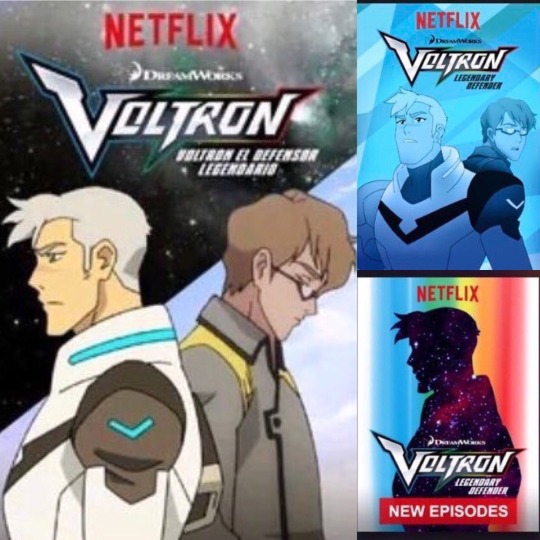
So uh.... Good morning.
So I think it’s pretty obvious by now that the reception to season 7 has been less than... good. The fan base has been shattered. People are upset, angry, and abandoning this series in droves (I’ve lost over 50 followers as I write this, just from people no longer wanting anything to do with this show) and have been incredibly vocal as to the reason why.
They killed Adam.
After two weeks of receiving praise for the relationship that was revealed at San Diego Comic Con, fans discovered on Friday night that Adam’s existence would be short lived, further contributing to this popular “Bury Your Gays” trope.
And I’ve seen people confused at this outcry. They don’t understand why people are so upset at this tiny side character’s death. What’s the big deal, right? It’s war! There’s supposed to be casualties!
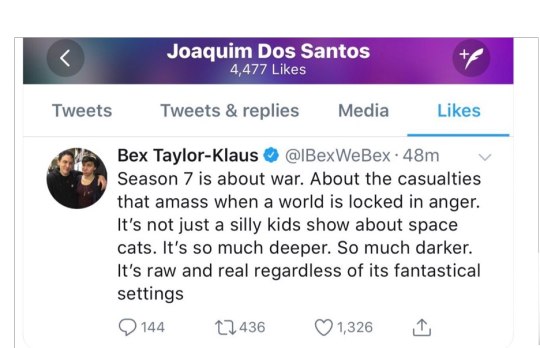
And to that kind of response I have to narrow my eyes and go:
“Oh.... maybe you understand the history of this.”
Because it is a history. A rich one. “Bury your gays” isn’t a trope in the same why that “Fake dating” is a trope. It’s not popular out of coincidence and I feel like many people are ignorant of that, which is FAIR! Because most voltron fans are young, most tumblr users are young, so I don’t expect you to be watching documentaries on LGBT+ cinema in between studying for your chemistry exams.
So that’s where I come in. Buckle in children as I take you on a journey on why the “Bury your gays” trope exists, and the harmful ramifications that it has had on the LGBT+ community since its inception.
So lets go back. Way back to the 1920′s when homosexuality, or at least homosexuality adjacent themes were seen on screen.

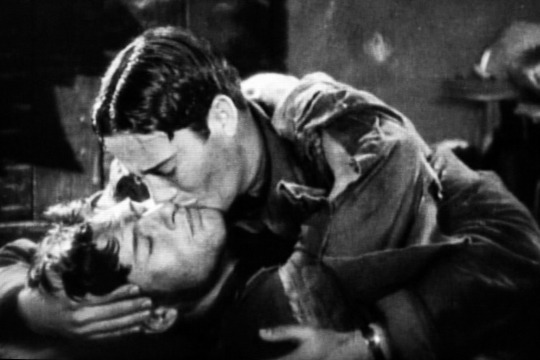
A time where a bro could kiss his bro, and it was seen as heart wrenching and realistic (Wings, 1927). A time where Marlene Dietrich could wear a suit better than a man, and flirt and kiss a lady just because she fucking could (Morocco, 1930). A time where gender roles were a bit looser, and there wouldn’t be an outcry over such imagery.
But as the great depression continued, and film producers became desperate to get butts in seats at the cinema, these LGBT+ themes became outright explicit. Raunchy even. Used for titillation and shock value.
“Have you seen that new picture, Doris? The one where the roman emperor has the hot male sex slave?? Mmmmm scandalous!”
But with this rise of LGBT+ characters and interactions used for shock value, also came the rise of public outcry. The catholic church (those debbie downers) started boycotting films. This lead to the formation of the PRODUCTION CODE, which is a fancy way to say THE CODE THAT WILL NOW CENSOR THE SHIT OUT OF YOUR FILMS in 1934.
Backed by catholic activists, the code made it impossible for LGBT+ representation to exist on film.
But did they?? See, this is actually were we start to see the development of “Queer coding”. Where actors and directors got savvy, and let you know a character was gay, whilst never explicitly stating so. It was subtle enough that it got past censors, but clear enough that audience members, especially LGBT+ people, got clued in.
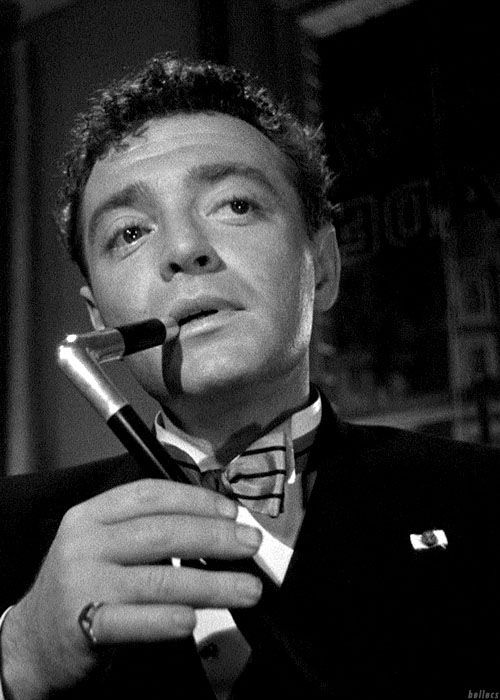
Yeah Peter Lorre, you put that phallus shaped object next to your mouth a lot. They’ll get what your implying, don’t you worry.
Oh, I’m sorry.... did i say you couldn’t have LGBT+ characters?? My mistake, you totally fucking could. Explicitly even.... if they were the villain. Religious people were totally cool if the villain in your film was LGBT+, because to them, that’s what LGBT+ people were.... villains.
Film’s like Rebecca, Dracula’s Daughter, and Alfred Hitchcock’s Rope all centre around truly horrifying and despicable villains... who are all gay. LGBT+ villains became such a staple in horror films during this time that it lead to a whole near character archetype! We have the damsel in distress, the heroic soldier, the wise old man, now welcome the rise of the:
PSYCHO QUEER.
Yikes.
But why I’m talking about this so much is because this popularity in LGBT+ villains is what creates the “Bury your Gays” trope.
Because the villains.... always die.
It’s their comeuppance. Their karma. Of course bad people will die and the heroes will go one to live a happy life! But what crime are we punishing these villains for?
The message these movies gets across to their audiences is that “If you are gay, you are a bad person... and bad people deserve to die”. Because Gay and villain were so synonymous with each other, they become one in the same, and as we all know by now REPRESENTATION MATTERS.
This influences how society views LGBT+ people, so that in 1952, when the PRODUCTION CODE of YOU BETTER NOT CONDONE ANYTHING SINFUL IN HERE BECAUSE JESUS DOESN’T LIKE THAT is torn down, things still don’t get much better for LGBT+ representation.
LGBT+ characters no longer have to be villains, but society is still not super cool with LGBT+ people, so now we get a new archetype: The self hating tragic gay character. And often? These characters kill themselves, such as in 1961′s The Children’s Hour. Because this is palatable to audiences who do not condone homosexuality in any way, but watching an LGBT+ struggle with themselves? Watching them become overwhelmed by guilt and hatred until they decide that death is the only way out? How tragic! How cursed they are! How pitiful! How... marketable.
But to see LGBT+ characters end up happy? Audiences at this time would not have stomached it, because to them, being LGBT was immoral and these characters were not deserving of happiness. A good analogy might be how modern audiences would view a film with a drug addict character in it. The addict either succumbs to their addiction and dies tragically, or they “Go straight” and have a happy ending. For these audiences in the 50s and 60s the only happy ending was a straight ending.
Then in 1969 we get the Stonewall Riots, and in the 1970s things actually look alright.
That is until the 1980s and society finds a new reason to hate, fear and vilify LGBT+ people. The AIDS crisis wipes out lives and almost all positive representation in the media. This fear is echoed in film as LGBT+ people become villains again. Sleepaway Camp and Cruising are such examples.
The 90′s are better. Whilst mainstream cinema is still vilifying LGBT+ in the 80s, more positive independent films still exist, and the success of the 1991 documentary Paris is Burning prompts Hollywood to go “Hey... maybe we can get some money if we pander to these LGBT+ folks”.
There is a brief period in the 90s where gay comedies like The Birdcage, In and Out, and To Wong Foo are allowed to exist. They’re comedies. The stereotypes are played for laughs, but there is a level of joy and care with these movies where even though these characters are making us laugh... for once we’re not laughing at them. We love these characters. We want them to succeed. No. One. Dies.
It smells like progress. Finally.
Or at least it would. Because these films also exist in the same decade that Philadelphia wins Oscars and the musical Rent is winning Tonys. Both of these deal with the tragedy of the AIDS crisis and have main characters die from the disease. Am I going to point out that Rent has four characters suffering from AIDS, but the only one to die is the Trans-coded poc gay man? Yes. Yes I am. Meanwhile the heterosexual couple suffering from AIDS gets a happy ending.
Interesting.
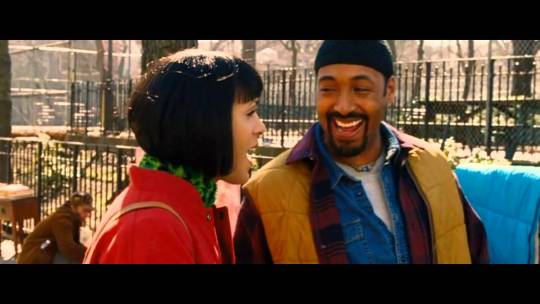
I hate you Rent. I hate you so goddamned much.
Also the 90s sees a good return to queer-coding villains. It’s always been there. It’s never really gone away, but I need to talk about the queer coding of 90′s villains because I’m sure all of you will actually recognise them.

Ah. There They are. Queer coding and Disney have a very rich history, which MANY articles have been written on. One might even say that it’s a... tale as old as time.
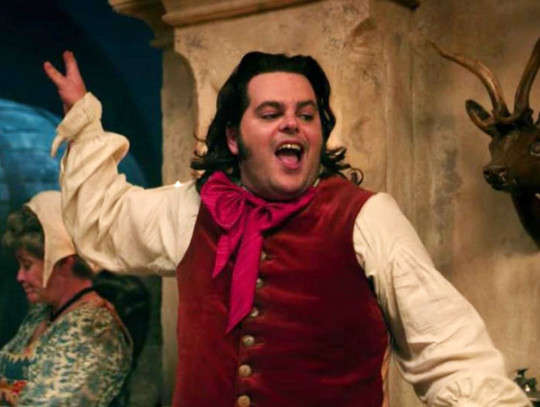
Mmmm no thank you.
But why it is so rampant, particularly in animated films, is because the films have a limited run time.
“We need to convince the audience that these characters are villains IMMEDIATELY. We don’t really have the time to waste on developing them and showing all their evil actions. We need audiences to believe when we tell them that these characters are bad. how do we do that?”
“.... make them kinda gay??”
That’s not actually how the conversation went in the board room, I’m sure, but it’s a very reduced down version. Because of the history of LGBT+ villains in the early years of cinema, animation relies on the stereotypes of villainous characters... well unfortunately those villains of old were LGBT+, so now we have LGBT+ stereotypes being passed on to new villains.
Anyway, my point is that almost all Disney villains die. Sorry that’s where I was going with this. Most of them die. The “Bury your Gays” trope is repeated here because of the villain’s queer coding. It’s not obvious, but the subtext is “Hey, if you’re a bit effeminate or do things outside of your strict gender role? Mmmmmm you deserve to die.”
“Bury your Gays” continues in modern media. Despite the importance of Brokeback Mountain, which explicitly shows a romance and intimacy between two men... Jake Gyllenhaal’s character still dies, and it’s implied that it may be due to a hate crime.
We see it in television. Buffy the Vampire Slayer, Downton Abbey, Arrow, there was a massive outcry over the trope in The 100 when a female character, after just entering an intimate relationship with another female character, is killed off seemingly senselessly.
The LGBT+ community is tired of only seeing themselves killed for shock value, character growth, or tragedy. Even Ru Paul’s Drag Race has come under fire in recent years for seemingly exploiting its contestants traumatic histories for ratings.
This is why this year’s Love, Simon was so important. The film portrays an adolescent gay character as he struggles with being open with his sexuality and finding a meaningful relationship. Simon is portrayed as a sympathetic character. He’s the hero.
And he gets a happy ending.
This is why Korrasami, a same-sex relationship in children’s media, is so important. It shows two girls achieving their happy ending together.
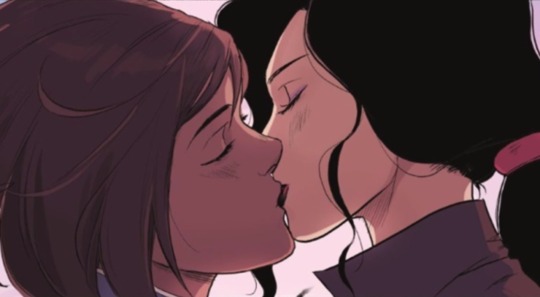
It’s why in the same year that Steven Universe portrays a same sex wedding, Adam’s death feels like such a step backwards.
The producers have stated that Adam’s death was supposed to raise the stakes of the season, it was supposed to make viewers realise the severity of the situation and overcome them with a feeling of loss, but Adam’s death doesn’t just fail the LGBT+ fans... it fails to effect viewers emotionally.
Because audiences can’t mourn a character that they have no connection with.
Most of Adam’s character was developed in interviews and not in the show, where he only spoke for one scene. The creators talked about the deep relationship between Adam and Shiro, but none of that is actually visible in the series. Taking the season at face value, Adam is just some guy who’s connected to Shiro that is killed off unceremoniously. He wasn’t even given the dignity of hero’s death, taking out even one enemy before he died. That’s what hurts the most.
His death is meaningless. It does nothing. It’s pointless.
But of course “There’s still Shiro, right?”, which is true. Shiro still exists and is confirmed a mlm, which is important, but it’s understandable why fans may not be satisfied with this. Let’s take a closer look at Shiro.
I often joke with my friends that Voltron should be renamed Shiro Suffers: The Series, because out of all the characters in the show, Shiro has definitely endured and been subjected to the worst (you could argue that Allura has, but Shiro has the joy of being tortured emotionally and physically, so I feel he wins).
The writers have tried to kill him numerous times, with only toy sales saving him. He’s been beaten, tortured, terminally ill, killed, revived, possessed and used... it’s a lot. In the old days, I used to ship shallura, not really out of feeling a real romantic connection between the characters, but just because I wanted Shiro to have someone. Someone to help support him. Someone he could open up about his struggles with. The paladins mean a lot to Shiro, but because he is their surrogate guardian, he cannot open up to them like this. He cannot show the paladins weakness, and we see this in how he keeps his disease a secret from Keith, because he does not want to burden Keith with his struggle.
The introduction of Adam wasn’t just exciting because of the potential of seeing a caring LGBT+ relationship, but because it gave fans hope that Shiro would have someone. There was the potential that Shiro might finally gain some kind of supportive relationship outside of his strict roles of “leader” and “guardian”.
Adam’s death removes that possibility. Despite how caring, generous, strong, intelligent, kind, patient and capable Shiro is written... his life is fucking awful. It’s very telling that in the final scene of the season, when every other paladin is in the hospital surrounded by their family and loved ones, Shiro is alone. He’s on a stage, giving a rousing speech to a crowd, still trapped in this role as an inspirational leader.
God, they don’t even let Shiro mourn Adam. Does he feel guilty that he was the one who supposed to die, whilst Adam lived, but now their roles are reversed?We’ll never know. Adam’s death doesn’t even give some insight into Shiro’s character. It’s truly pointless.
Season 7 of Voltron has made it clear that this is not a kids show. This is a serious show with dark themes. The writers want it to be taken more seriously.
Then I will critique it more seriously.
While I strongly doubt it was intentional, season 7 perpetuates the age old message “If you are LGBT+, you will not achieve a happy ending.” The “Bury your Gays” trope is steeped in a history of oppression, censorship, and vilification. When Adam dies, you’re not just seeing a character die, but you’re seeing the series make a conscious decision to participate in this oppressive trope. And it stings even more because the series sets two heterosexual relationships to potentially end in happiness, whilst the LGBT+ relationships have already ended in tragedy.
Why Adam? Why not literally anyone else? We had no connection to him, so it’s not like they could have used a handful of other characters for the same effect. (Kill James. Fuck that guy. And he’s young so it really would have hurt.)
And that’s what you have to question. This is why fans are upset.
I’m not writing this to convince anyone to boycott the show, or plead with you to stop watching. That’s up to you and your own belief system. I definitely do not condone harassing the writers or voice actors.
I just want people to understand why fans are so upset over season 7, and that they have every right to be. To state that the outcry is just because “fans didn’t see their ships become canon” is dismissive and cruel. Adam and Shiro’s relationship was heavily used in marketing by Netflix, so much so that you could call it queer-baiting. It was hyped at SDCC and explained as this deep and meaningful relationship, whilst the producers knew what Adam’s fate would be the whole time.
I know producers have to answer to higher ups. I know the crew were largely on edge about what would get approved and what would not.
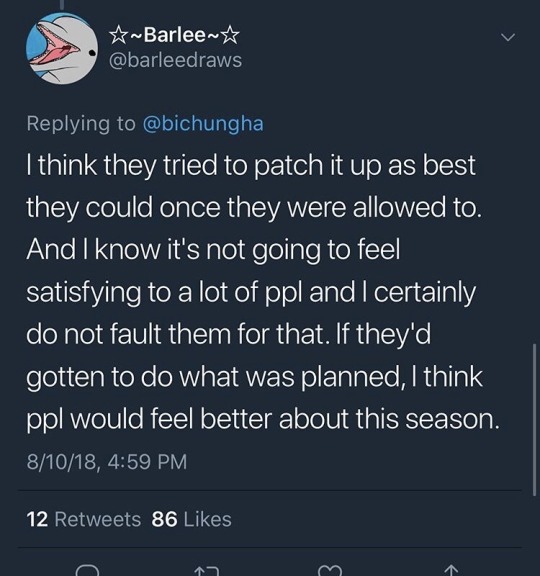
But the point remains... they still made this conscious choice. Fans don’t have to be happy about it. They shouldn’t be.
I have no idea what season 8 will bring, and at this point I feel like it might be a mess. But I encourage fans to support each other and be vocal about why you’re upset. You can’t change this show, but there’s hope that another series could learn from this.
History repeats. Until we don’t let it.
#voltron#vld#voltron spoilers#adashi#shadam#discourse#negativity#q slur#takashi shirogane#this took a while
33K notes
·
View notes